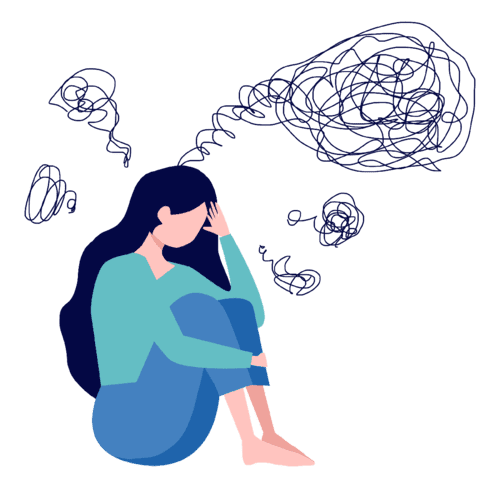Nail Biting OCD Assessment
Free Nail Biting OCD Assessment

What is Nail Biting OCD Assessment?
Nail biting can be associated with Obsessive-Compulsive Disorder (OCD) when it becomes an uncontrollable, repetitive behavior driven by obsessive thoughts or anxiety. An assessment for Nail Biting OCD would involve evaluating the severity of nail biting, its impact on daily life, the presence of distressing obsessive thoughts, and the urge to perform the behavior. A mental health professional would assess these factors to determine if nail biting aligns with OCD and to recommend appropriate interventions such as therapy and possibly medication.
Who can benefit from this Nail Biting OCD Assessment?
The Nail Biting OCD Assessment can benefit individuals who struggle with excessive nail biting and believe it is driven by obsessive-compulsive tendencies. This assessment is suitable for those who experience distressing thoughts (obsessions) related to nail biting, engage in repetitive behaviors (compulsions) to alleviate anxiety, and seek to better understand their symptoms. It helps determine if the nail biting behavior aligns with OCD patterns, aiding in informed decision-making for seeking appropriate interventions, such as therapy or treatment.
Nail Biting OCD Assessment Accuracy
Assessing nail-biting as a form of OCD requires careful evaluation by a qualified mental health professional. While nail-biting can be a habitual behavior, it might also indicate an underlying obsessive-compulsive tendency. Accurate assessment considers the frequency, triggers, distress, and impact on daily life. Only a professional can determine if nail-biting qualifies as an OCD symptom or a separate issue.
Types of Nail Biting OCD Assessment
Clinical Interview:
A mental health professional, such as a psychologist or psychiatrist, would conduct a thorough clinical interview. They would ask questions to gather information about the individual’s nail biting behavior, its triggers, and the thoughts and emotions associated with it.
Diagnostic Criteria:
The mental health professional would evaluate whether the individual meets the diagnostic criteria for OCD as outlined in the DSM-5 (Diagnostic and Statistical Manual of Mental Disorders, Fifth Edition).
Assessment of Obsessions:
The mental health professional would inquire about any obsessive thoughts that might be driving the nail biting behavior. These obsessions could be related to contamination fears, worries about symmetry or order, or other themes commonly seen in OCD.
Assessment of Compulsions:
The individual’s nail biting behavior would be assessed to determine whether it is performed as a response to the obsessive thoughts. Compulsions in OCD are often aimed at reducing anxiety or preventing a feared event, even if they are not logically connected to the event itself.
Duration and Frequency:
The mental health professional might ask about the duration and frequency of the nail biting behavior. For a diagnosis of OCD, the nail biting would need to be part of a broader pattern of obsessions and compulsions.
Assessment Tools:
There are assessment tools that mental health professionals might use to gather more information about OCD symptoms, such as the Yale-Brown Obsessive Compulsive Scale (Y-BOCS).
Handling Nail Biting OCD Issues
Nail biting is a common behavior that can be associated with various underlying causes, including anxiety, stress, and sometimes OCD. If you’re struggling with nail biting and it’s causing distress, here are some strategies that might help:
- Awareness: The first step is to become aware of when and why you’re biting your nails. Keeping a journal can help you identify triggers, situations, and emotions that lead to nail biting.
- Substitution: Replace the nail biting habit with a healthier behavior, such as using a stress ball, fidget toy, or chewing gum. This can provide a similar sensory experience without the negative effects of nail biting.
- Maintain Hygiene: Remind yourself of the potential health risks associated with nail biting, such as infections. Keeping your nails clean and well-maintained might motivate you to avoid biting them.
- Bitter-Tasting Nail Polish: There are nail polishes available that have a bitter taste specifically designed to deter nail biting. This can create a negative association with nail biting and make it less appealing.
- Mindfulness Techniques: Practicing mindfulness can help you become more aware of your impulses and provide an opportunity to choose a different response. When you feel the urge to bite your nails, pause and take a few deep breaths before acting.
- Stress Reduction: Since stress and anxiety can contribute to nail biting, finding healthy ways to manage stress can be beneficial. Engage in activities like exercise, meditation, yoga, or hobbies you enjoy.
- Reward System: Set up a reward system for yourself. For example, if you manage to avoid nail biting for a certain period, treat yourself to something you enjoy.
- Visual Cues: Place reminders or visual cues in areas where you’re most likely to bite your nails. These cues can help you become more conscious of your habit and remind you to stop.
- Professional Help: If nail biting is causing significant distress and you find it difficult to control, consider seeking help from a therapist. They can provide guidance and strategies tailored to your specific situation.
- Self-Care: Taking care of your overall well-being can indirectly help with nail biting. Make sure you’re getting enough sleep, maintaining a balanced diet, and engaging in activities that bring you joy.
- Regular Maintenance: If you’re concerned about the appearance of your nails, consider getting regular manicures. Well-groomed nails might make you less likely to bite them.
- Patience and Persistence: Changing habits takes time, and setbacks may occur. Be patient with yourself and celebrate small victories along the way.
Remember that overcoming nail biting or any habit requires effort and commitment. If your nail biting is associated with underlying anxiety or OCD symptoms, it’s important to address those underlying issues as well. If you’re finding it challenging to manage on your own, consider seeking professional help from a therapist who can provide specialized guidance.

